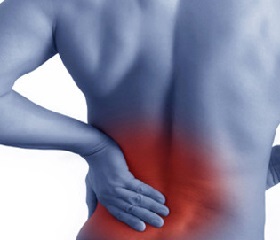 Pyelonephritis is an inflammation of the kidneys, which occurs in acute or chronic form. The disease is quite widespread and very dangerous for health.Symptoms of pyelonephritis include pain in the lumbar region, fever, severe general condition and chills. Occurs most often after hypothermia.
Pyelonephritis is an inflammation of the kidneys, which occurs in acute or chronic form. The disease is quite widespread and very dangerous for health.Symptoms of pyelonephritis include pain in the lumbar region, fever, severe general condition and chills. Occurs most often after hypothermia.
It can be primary, that is, it develops in healthy kidneys, or secondary, when the disease occurs against the background of already existing kidney diseases (glomerulonephritis, urolithiasis, etc.). Also, acute and chronic pyelonephritis is isolated. Symptoms and treatment will directly depend on the form of the ailment.
This is the most common kidney disease in all age groups. They are more often affected by women of young and middle age - 6 times more often than men. In children after diseases of the respiratory system (bronchitis, pneumonia) takes the second place.
Causes of pyelonephritis
Why does pyelonephritis develop, and what is it? The main cause of pyelonephritis is infection. Infection means bacteria such as Escherichia coli, Proteus, Klebsiella, Staphylococcus and others. However, when these microbes get into the urinary system, the disease does not always develop.
To have pyelonephritis, we need also contributing factors. They include:
- Violation of the normal urine flow (urine reflux from the bladder to the kidney, "neurogenic bladder", prostate adenoma);
- Infringement of blood supply of the kidney (deposition of plaques in the vessels, vasculitis, vasospasm with arterial hypertension, diabetic angiopathy, local cooling);
- Inhibition of immunity (treatment with steroid hormones (prednisolone), cytostatics, immunodeficiency due to diabetes mellitus);
- Pollution of the urethra area (non-observance of personal hygiene, incontinence of feces, urine, with sexual acts);
- Other factors (decreased mucus secretion in the urinary system, weakened local immunity, mucosal blood supply disorder, urolithiasis, oncology, other diseases of this system and in general, any chronic diseases, reduced fluid intake, abnormal anatomical structure of the kidneys).
Once in the kidney, the microbes colonize the calyx, then the tubules, and from them - the interstitial tissue, causing inflammation in all these structures. Therefore, it is not necessary to postpone the question of how to treat pyelonephritis, otherwise severe complications are possible.
Symptoms of pyelonephritis
 In acute pyelonephritis, the symptoms are pronounced - it starts with a chill, when measuring the body temperature, the thermometer column shows over 38 degrees. After a while, aching pain appears at the bottom of the back, the waist "pulls", and the pain is quite intense.
In acute pyelonephritis, the symptoms are pronounced - it starts with a chill, when measuring the body temperature, the thermometer column shows over 38 degrees. After a while, aching pain appears at the bottom of the back, the waist "pulls", and the pain is quite intense.
The patient is often disturbed by the urge to urinate, which is very painful and indicates the connection of urethritis and cystitis. Symptoms of pyelonephritis can have common or local manifestations. Common signs are:
- High intermittent fever;
- Severe chills;
- Sweating, dehydration and thirst;
- There is intoxication of the body, which causes the headache, fatigue increases;
- Dyspeptic phenomena (nausea, no appetite, stomach aches, diarrhea appears).
Local signs of pyelonephritis:
- In the lumbar region of pain, on the affected side. The nature of the pain is dull, but permanent, increasing with palpation or movement;
- Muscles of the abdominal wall can be strained, especially on the affected side.
Sometimes the disease begins with acute cystitis - frequent and painful urination, pain in the bladder, terminal hematuria (the appearance of blood at the end of urination). In addition, general weakness, weakness, muscle and headaches, lack of appetite, nausea, vomiting are possible.
If you have these symptoms of pyelonephritis, see a doctor as soon as possible. In the absence of competent therapy, the disease can go into a chronic form, cure which is much more difficult.
Complications
- acute or chronic renal failure;
- various suppurative diseases of the kidneys (carbuncle of the kidney, abscess of the kidney, etc.);
- sepsis.
Treatment of pyelonephritis
In primary acute pyelonephritis, in most cases, treatment is conservative, the patient should be hospitalized in a hospital.
The main curative measure is the effect on the causative agent of the disease with antibiotics and chemical antibacterial drugs in accordance with the data of the antibiogram, detoxification and therapy that increases immunity in the presence of immunodeficiency.
In acute pyelonephritis treatment should start with the most effective antibiotics and chemical antibacterial drugs, which is sensitive microflora of urine, in order to eliminate the inflammatory process in the kidney as soon as possible, preventing it from becoming a purulent-destructive form. With secondary acute pyelonephritis treatment should begin with the restoration of urine massage from the kidney, which is fundamental.
Treatment of a chronic form is fundamentally the same as acute, but longer and more labor-intensive. In chronic pyelonephritis treatment should include the following main activities:
- Elimination of the causes that caused a violation of the passage of urine or renal circulation, especially the venous circulation;
- Assign antibacterial agents or chemotherapeutics taking into account these antibiograms;
- Increase of the body's immune reactivity.
Restoration of urinary outflow is achieved primarily by the use of a particular type of surgical intervention (removal of prostatic adenoma, stones from the kidneys and urinary tract, nephropexy with nephroptosis, urethra plastic or ureteropelvic segment, etc.). Often after these surgical interventions it is possible to obtain relatively stable remission of the disease relatively easily and without prolonged antibacterial treatment. Without a sufficiently well-restored urine massage, the use of antibacterial drugs usually does not give a long-term remission of the disease.
Antibiotics and chemical antibacterial drugs should be prescribed taking into account the sensitivity of the microflora of the patient's urine to antibacterial drugs. Antibiogram preparations with a wide spectrum of action are prescribed for the receipt of these antibiograms. Treatment for chronic pyelonephritis is systematic and prolonged (at least 1 year). The initial continuous course of antibacterial treatment is 6-8 weeks, as during this time it is necessary to achieve the suppression of an infectious agent in the kidney and the resolution of a purulent inflammatory process in it without complications to prevent the formation of scar tissue. In the presence of chronic renal failure, the appointment of nephrotoxic antibacterial drugs should be carried out under the constant control of their pharmacokinetics (concentration in the blood and urine). With a decrease in the parameters of the humoral and cellular links of immunity, various drugs are used to enhance immunity.
After the patient achieves a stage of remission of the disease, antibiotic treatment should be continued with intermittent courses. The timing of breaks in antibacterial treatment is determined depending on the degree of kidney damage and the time of onset of the first signs of exacerbation of the disease, i.e., the appearance of symptoms of the latent phase of the inflammatory process.
Antibiotics
Medicines are selected individually, taking into account the sensitivity of microflora. The most commonly prescribed antibiotics for pyelonephritis are:
- penicillins with clavulanic acid;
- cephalosporins 2 and 3 generations;
- fluoroquinolones.
Aminoglycosides are undesirable because of their nephrotoxic effect.
How to treat pyelonephritis with folk remedies
Home treatment of pyelonephritis with folk remedies must necessarily be accompanied by bed rest and wellness A diet consisting mainly of plant foods in a raw, boiled or steamy form.
- During the period of exacerbation, such a collection helps. Mix the birch leaves white, the herb of St. John's wort and sporis, the flowers of marigold, the fruits of fennel (dill pharmacy). Pour in a thermos 300 ml of boiling water 1 tbsp. l. collection, insist 1-, hours, drain. Drink infusion in warm form in 3-4 meals 20 minutes before meals. The course is 3-5 weeks.
- Outside the exacerbation of the disease, use another collection: grass sporisha - 3 parts; grass nettle (deaf nettle) and grass (straw) oats sown, leaves of medicinal sage and wintergreen, fruit of rose hips and licorice roots - in 2 parts. Take 2 tbsp. l. collection, pour 0.5 liters of boiling water in a thermos, insist 2 hours and strain. Drink a third of the glass 4 times a day for 15-20 minutes before eating. Course - 4-5 weeks, then a break for 7-10 days and repeat. A total of 5 courses (until stable results are obtained).
Diet
When inflammation of the kidneys it is important to comply with bed rest and a strict diet. Use enough fluids to stop dehydration, which is especially important for pregnant women and people over 65 years of age.
In inflammatory processes in the kidneys are allowed: lean meat and fish, stale bread, vegetarian soups, vegetables, cereals, soft-boiled eggs, dairy products, sunflower oil. In small quantities, you can use onions, garlic, dill and parsley (dried), horseradish, fruits and berries, fruit and vegetable juices. It is forbidden: meat and fish broth, smoked meat. Also you need to reduce the consumption of spices and sweets.

How to choose probiotics for the intestine: a list of drugs.

Effective and inexpensive cough syrups for children and adults.

Modern non-steroidal anti-inflammatory drugs.

Review of tablets from the increased pressure of the new generation.
 Antiviral drugs are inexpensive and effective.
Antiviral drugs are inexpensive and effective.



